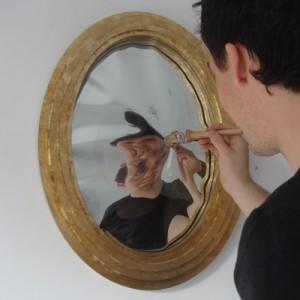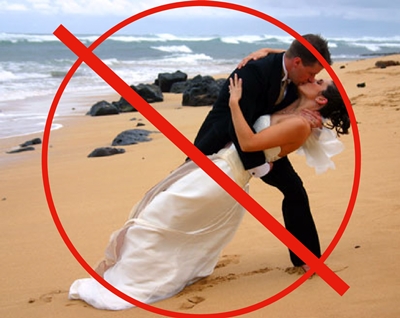 The other day I read a story about a gay bar in Denmark that bounced a straight couple after they were discovered kissing.
The other day I read a story about a gay bar in Denmark that bounced a straight couple after they were discovered kissing.
Jobbe Joller, the founder of the LGBT organization Homosocialt Fællesskab, heard about a friend who was caught kissing her boyfriend in the bar. “I told the bouncer that it had to be discrimination against heterosexuals to say that they were not allowed to kiss. . . . The bouncer replied that it was unacceptable to conduct that kind of behavior at a gay place and that Never Mind receives a lot of emails from its gay guests concerning the high number of straight guests that visit the bar . . . . I asked him if it was not the same as saying that black people are not allowed to kiss in Never Mind, but he disagreed and told me that the owner of Never Mind may decide who can kiss and who can’t kiss in the bar.”
This reverse discrimination, coupled with the decisive passage of the discriminatory Amendment One in North Carolina on Tuesday, made me think. The following scenario is posed to the straight supporters of Amendment One, who are sighing with relief that their vote succeeded in “making marriage invulnerable.”
Imagine that you are 10 or 11—maybe younger, maybe older. Imagine awakening to the realization that—in spite of all you’ve been taught, all the stories, pictures, movies, and couples you’ve observed, and all you’ve heard about falling in love—that the person you have a mad crush on is not a girl (as you are) or a boy (as you are). Imagine the ease with which the adults all around you, those responsible for your care and nurturing—at home, in church, and in school—freely mock and cast aspersions on people like you know yourself to be, who call what you are feeling shameful, unnatural, sinful, and disgusting.
Imagine that “heterosexual” is the nice word for what you know you are but are too scared to admit, even to yourself. Imagine hearing the word “straight” hissed through snarling and laughing lips, spat out by the very people who have raised you to respect your elders, pray to your god, and pledge allegiance to your flag.
Now think of being in school, and of being one of only a small handful of kids who are attracted to kids of the opposite sex, but you—all of you—are too afraid and shy to say so, so you pretend to like girls (if you are a girl) or boys (if you are a boy). You pretend and you try to do what adults and society have told you is the right thing, but no matter how hard you try, you just can’t stop liking kids of the opposite sex. Imagine that it gets out that you’re that awful thing—straight—and you become the butt of mean jokes, schoolyard taunting, physical roughing up, and Facebook hate pages. “She likes boys! She’s straight! She’s a freak! She’s not the way she’s supposed to be. She’s a sinner in God’s eyes. She should just die.”
Now try to imagine swallowing all of that, and finally mustering all your courage to sit down with your parents, whom you love and who have taught you everything you know, to tell them that you are that frowned upon, disapproved, freakish thing—straight. You confess that you have feelings for the opposite sex, that you just can’t help how you feel, and that you’re pretty sure you were just born this way. Imagine having your parents go pale with shock, or turn red with embarrassment, or lift a hand to strike you in anger, or tell you how disappointed they are in you, or even kick you out of your own house and out of their lives.
Imagine the pastor of your church telling you that heterosexuality is an abomination, and a sin against God, that it’s in defiance of the Bible, but that the church will still love you even though you are a sinner, and that if you just pray hard enough, and perhaps seek psychiatric attention, you may just be able to be cured of your perversion.
Imagine all these things, and then imagine the ultimate: that you grow up and fall in love with someone of the—gasp—opposite gender. Not into puppy love, not into a childhood flirtatious crush, but into a deep, doing-somersaults, can’t-breathe, romantic love. But you and your beloved must hide in the shadows, you can never touch each other when you’re in public, and you must pretend to be “just friends,” for fear of disapproval, retribution, even violence.
You and your partner stay strong. Your love is ironclad because you know you’ve found the person that you hope to spend the rest of your life with. You’re determined to find happiness wherever you can, even though you know that the members of your community—your family, your schoolmates, your church—are adamantly against you, every step of the way.
So the two of you steal away in the dark of night to one of the very few states in the country that legally recognize opposite-gender marriage, where the love you feel is accepted, where as two consenting adults you have the right to marry and commit yourselves to each other for the rest of your lives, even though you are a man and a woman.
Your parents, your schoolmates, and your church never speak to you again, but you try to take solace in each other, and in the life you are building together. Some people acknowledge you, some accept you, some are in opposite-sex marriages like yours, so you take comfort in the small number of those around you who empathize and see things the way you do.
You go through your life, making each day matter to you and your spouse. You manage reasonably well; you’ve been able to insulate yourselves from the hate all around you. But you never recover from the rejection that enveloped you when you came out as a straight person.
Imagine this story; really put yourself in this person’s shoes, and feel the fire of rejection and hate, the absolute isolation from losing your family, the hate that emanates from judging eyes and hissing mouths all around you. Imagine all this, and maybe you will begin to understand the challenges LGBT people face every single day of their lives in this homophobic world.
Through the Looking Glass,



